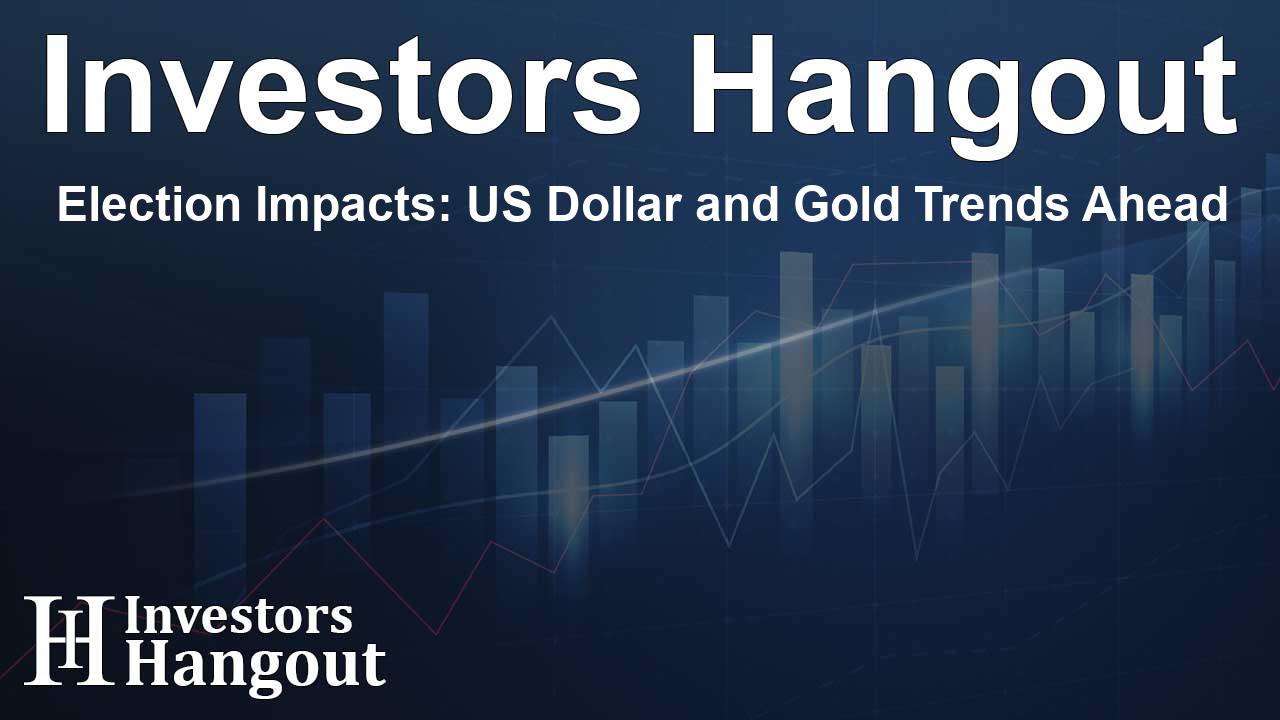Understanding Economic Trends in a Polarized Election
As the November 2024 Presidential Election approaches, both Kamala Harris and Donald Trump have laid out economic policies that many believe will negatively impact the US dollar while benefiting gold prices. This scenario creates a landscape where, irrespective of who wins, we’re likely to see a continued trend of a weakening dollar and a surging gold market. The nuances of each candidate's strategy reveal critical differences worth exploring.
Policies on Taxation and Investment
Harris has proposed increasing the capital gains tax rate along with a new tax on unrealized capital gains. This move is touted as a way to ensure that wealthy individuals contribute a minimum tax rate of 25%. However, such policies could discourage investments and hinder economic progress. The complexities introduced by these new taxes would require additional resources from both the IRS and private taxation sectors, potentially leading to a less productive economy.
Politicians often assume that increased taxes will simply lead to higher government revenue without changing behavior. This assumption is dangerously misleading, as seen in various countries that have scrapped wealth taxes due to out-migration of capital. The mobility of wealth among affluent individuals can drastically alter tax revenue projections.
Energy Policies and Economic Implications
Although Harris has recently softened her stance on energy matters, including her previous support for a fracking ban, her administration would likely boost government regulation over the oil and gas industries. Increased regulations could restrict approvals for energy projects, driving up energy prices and fueling concerns over fuel shortages, which would have negative repercussions on the economy.
In contrast, Trump’s administration may promise lower taxes, which could benefit the average American. Still, the potential lack of commensurate government spending cuts could accelerate the growth of national debt and lead to higher interest rates, challenging private-sector financing. His approach includes imposing high tariffs on imports, particularly targeting China, which could raise the cost of living significantly.
Trade Policies and Tariffs
Trump’s vision includes using tariffs as a tool to regulate international trade. These tariffs, while designed to protect domestic markets, would inevitably increase consumer prices as importers pass on the costs to buyers. Moreover, they could instigate retaliation from foreign governments, risking smaller markets and profit margins for US exporters and businesses.
Long-term Effects on International Trade
The overarching influence of such aggressive tariff policies could decrease international demand for the US dollar, threatening its position as the world's primary reserve currency. A significant long-term implication of this shift would be a diminishing trust in US financial markets, which have historically been considered open and liquid. While it's unlikely that an immediate alternative to the dollar would arise, the introduction of tariffs could hasten this process.
Summary of Potential Outcomes
In the end, Harris's higher tax proposals would likely suppress investment and further weaken the US economy, while Trump's tariffs could elevate living costs and disrupt international trade dynamics. The mutual outcome of both candidates' approaches suggests a continued rise in government debt and further vulnerability for the US dollar.
Despite their differing policies, it appears that both Harris and Trump may unwittingly share a common goal: a weaker dollar and higher gold prices. As the election draws near, understanding these economic implications will be crucial for investors and citizens alike.
Frequently Asked Questions
What impact could the election have on the US dollar?
The policies proposed by both candidates may lead to a weaker US dollar due to increased taxation and tariffs on imports, affecting international trade.
How might gold prices be influenced by the election?
Both candidates' economic strategies could lead to rising gold prices as investors may flock to gold as a safe haven amid currency devaluation concerns.
What are the risks associated with higher tariffs under Trump's policies?
Higher tariffs could raise living costs for consumers and trigger retaliatory measures from other nations, impacting US exports negatively.
How does Harris's taxation policy affect economic growth?
Increased taxation, particularly on capital gains, could deter investment and slow economic progress over the long term.
What's the long-term outlook for the US dollar?
The long-term outlook may be challenging if both candidates’ policies lead to decreased trust in US financial markets and increased national debt.
About Investors Hangout
Investors Hangout is a leading online stock forum for financial discussion and learning, offering a wide range of free tools and resources. It draws in traders of all levels, who exchange market knowledge, investigate trading tactics, and keep an eye on industry developments in real time. Featuring financial articles, stock message boards, quotes, charts, company profiles, and live news updates. Through cooperative learning and a wealth of informational resources, it helps users from novices creating their first portfolios to experts honing their techniques. Join Investors Hangout today: https://investorshangout.com/
Disclaimer: The content of this article is solely for general informational purposes only; it does not represent legal, financial, or investment advice. Investors Hangout does not offer financial advice; the author is not a licensed financial advisor. Consult a qualified advisor before making any financial or investment decisions based on this article. The author's interpretation of publicly available data shapes the opinions presented here; as a result, they should not be taken as advice to purchase, sell, or hold any securities mentioned or any other investments. The author does not guarantee the accuracy, completeness, or timeliness of any material, providing it "as is." Information and market conditions may change; past performance is not indicative of future outcomes. If any of the material offered here is inaccurate, please contact us for corrections.
